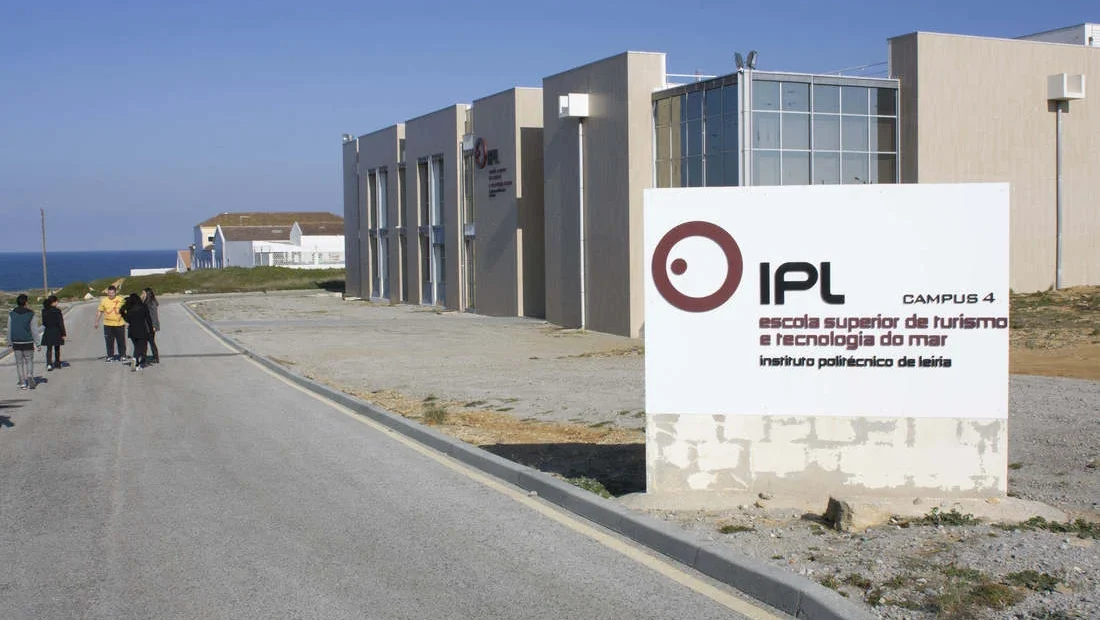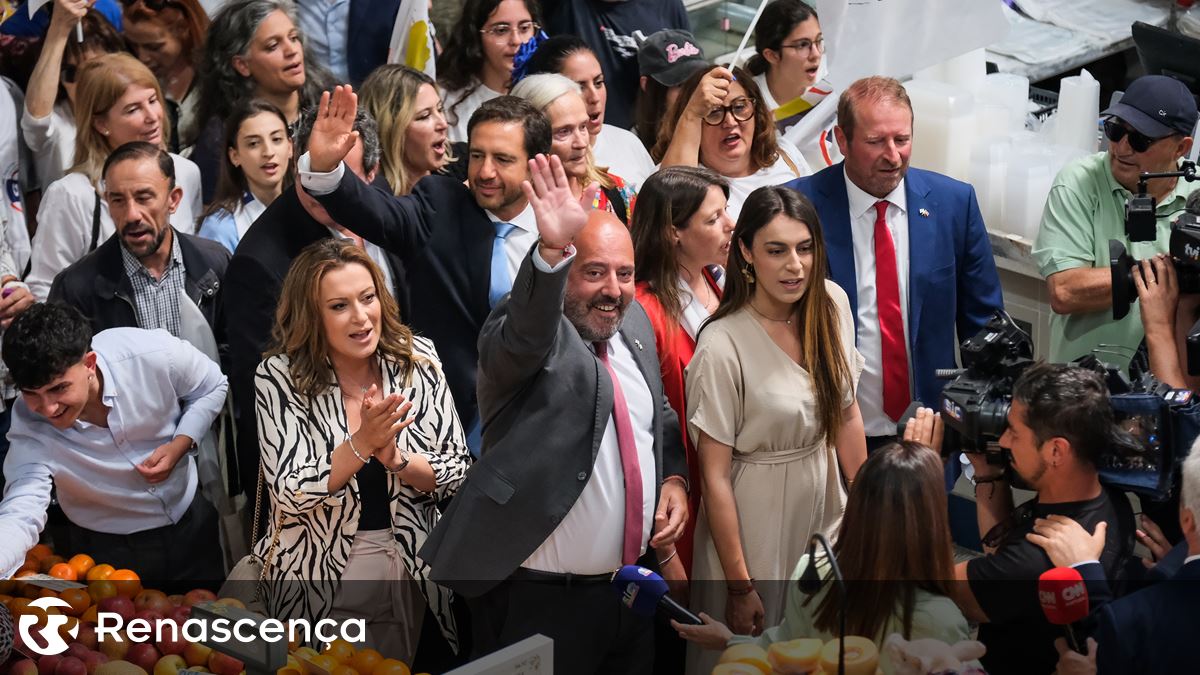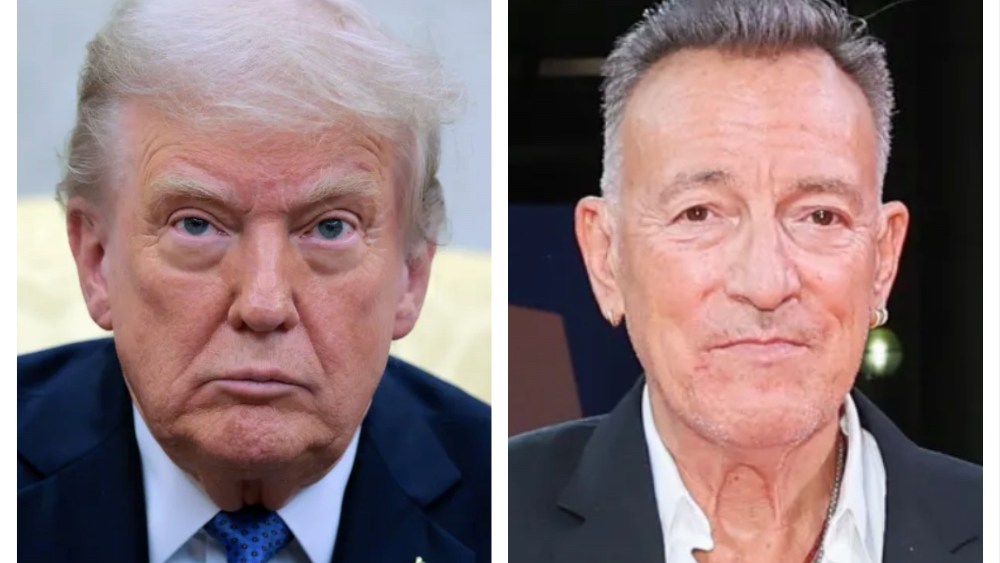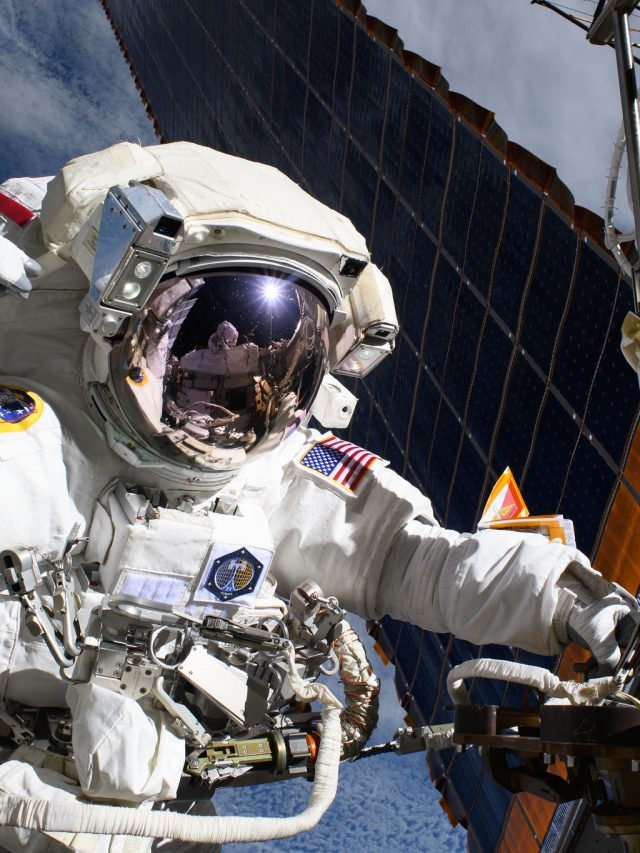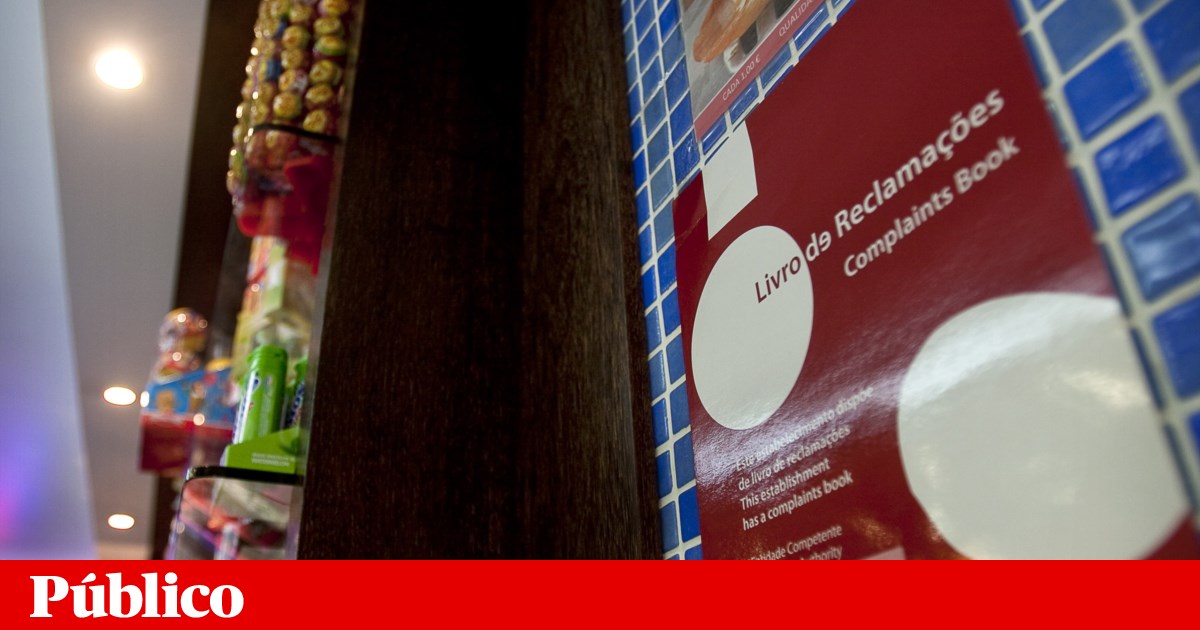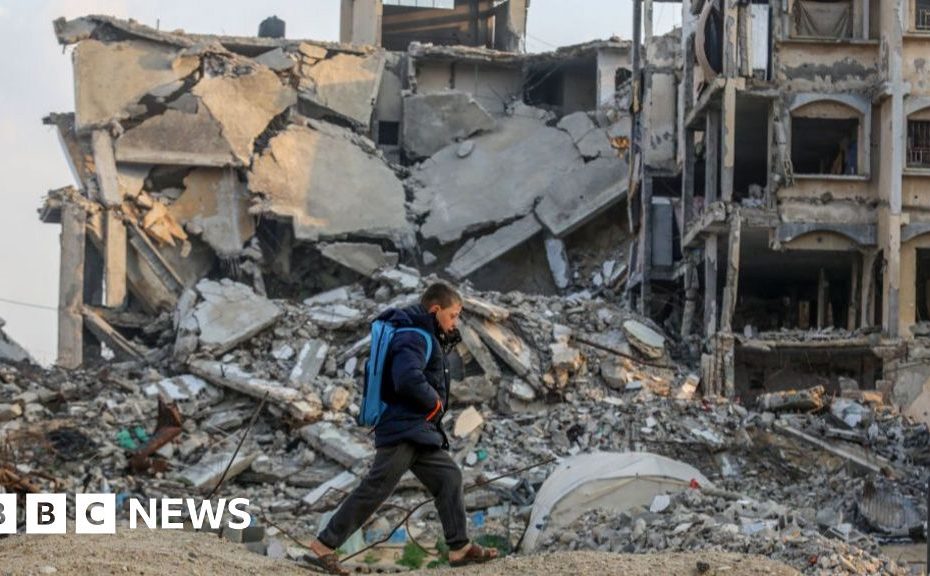Israel and Hamas, Qatar and the United States reach ceasefire agreement in Gaza
Qatari and U.S. mediators say Israel and Hamas have agreed on a ceasefire in Gaza and the release of hostages after 15 months of war.
Qatari Prime Minister Sheikh Mohammed bin Abdulrahman Al-Thani said the deal would come into effect on Sunday, subject to approval by the Israeli cabinet.
US President Joe Biden said he would “stop the fighting in Gaza, provide urgently needed humanitarian aid to Palestinian civilians and reunite hostages with their families”.
Israeli Prime Minister Benjamin Netanyahu said the final details of the deal were still being worked out, but he thanked Biden for the “push.” Hamas leader Khalil Haya said this was the result of Palestinian “resilience.”
Many Palestinians and the families of Israeli hostages celebrated the news, but the war in Gaza has not stopped.
The Hamas-run civil defense agency reported that more than 20 people were killed in Israeli air strikes following Qatar's announcement. According to reports, 12 of them live in a residential area in the Sheikh Radwan neighborhood of Gaza City. The Israeli military had no immediate comment.
Israel has launched a campaign to destroy Hamas, which is listed as a terrorist organization by Israel, the United States and other countries, in response to an unprecedented cross-border attack on October 7, 2023 that killed approximately 1,200 people, 251 people were taken hostage.
Since then, more than 46,700 people have been killed in Gaza, according to the Hamas-run Gaza Health Ministry. Most of the 2.3 million people have also been displaced, causing widespread destruction and severe shortages of food, fuel, medicine and shelter as aid is difficult to reach those in need.
Israel says 94 hostages are still being held by Hamas, 34 of whom are presumed dead. In addition, four Israelis were abducted before the war, two of whom died.
Qatar's prime minister called on both sides to remain “calm” ahead of the start of a six-week ceasefire in which 33 hostages, including women, children and the elderly, will be exchanged for Palestinian prisoners in Israeli jails, he said.
Israeli forces will also withdraw to the east, away from Gaza's densely populated areas, displaced Palestinians will be allowed to begin returning to their homes, and hundreds of aid trucks will be allowed into the area each day.
The second phase of negotiations will begin in 16 days, when the remaining hostages will be released, Israeli troops will fully withdraw, and “sustainable calm” will be restored.
The third and final phase will involve the reconstruction of Gaza, which could take years, and the return of the bodies of the remaining hostages.
Sheikh Mohammed said there was “a clear mechanism for phase two and phase three negotiations” and that the agreement would be announced “in the coming days as details are finalized”.
He also said that Qatar, the United States and Egypt also helped broker the agreement and that they would work together to ensure that Israel and Hamas fulfill their obligations.
“We hope that this will be the last page of the war and we hope that all parties will commit to implementing all the terms of the agreement,” he added.
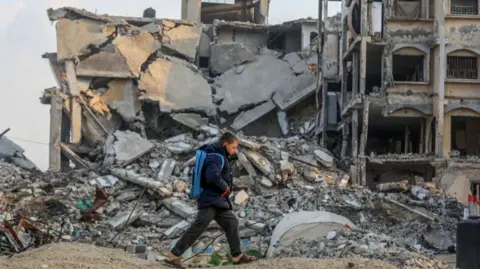 Getty Images
Getty ImagesPresident Biden said the plan he first outlined eight months ago was “not only the result of intense pressure on Hamas and the changing dynamics in the region following the ceasefire in Lebanon and a weakening Iran, but also the result of tenacity and hard work” by the U.S. diplomatic”.
A statement added: “While we welcome this news, we also remember all the families who lost loved ones in Hamas's attacks on October 7, and the many innocent lives lost in the ensuing war.” The war has ended long ago and the work of building peace and security has begun.”
At a subsequent news conference, Biden also acknowledged assistance from President-elect Donald Trump, who has put pressure on both sides by demanding the hostages be released before taking office on Monday.
“We've been communicating as a team over the past few days,” he said, noting that much of the implementation of the deal will occur after he leaves office.
Trump first confirmed reports that a deal had been reached, beating the White House and Qatar to make it official.
In subsequent posts on social media, he sought to take credit for the “epic” deal, saying it was “only possible with our historic victory in November.”
Israeli Prime Minister Benjamin Netanyahu's office thanked Trump for “helping facilitate the release of the hostages and helping Israel end the suffering of dozens of hostages and their families.”
“The Prime Minister has made clear that he is committed to returning all hostages by any means necessary,” the statement said, later adding that he also thanked Biden.
Later, the office said Netanyahu's formal statement “will only be released after the final details of the agreement currently being developed are completed.”
Israeli President Isaac Herzog said the deal would bring “deeply painful” moments and “present significant challenges” but that it was “the right move”.
The deal is expected to be approved by the Israeli cabinet as soon as Thursday morning, despite opposition from Netanyahu's far-right coalition partners.
Subsequently, the Israeli government will announce the names of all Palestinian prisoners to be released and give the families of the victims 48 hours to appeal. Some prisoners are serving life sentences for murder and terrorism offences.
Khalil Haya, chief Hamas negotiator and acting chief of Gaza, said the agreement was “a milestone in the conflict with our enemies and on the road to achieving our people's goals of liberation and return.”
He added that the group would now seek to “rebuild Gaza again, alleviate the suffering and heal the wounds.”
But he also warned that “we will not forget and we will not forgive” the suffering of Palestinians in Gaza.
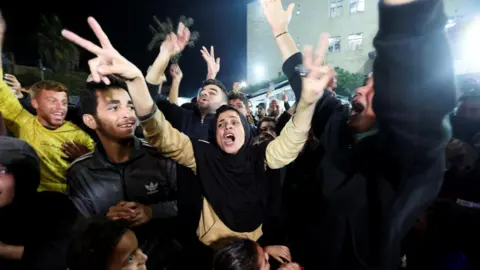 Reuters
ReutersAs news of the deal spread, photos showed people cheering and waving Palestinian flags in the central Gaza town of Deir al-Bala and the southern city of Khan Younis.
“We are all happy,” Sanabel, a 17-year-old girl living in northern Gaza City, told BBC OS.
“We've been waiting for this moment for a long time,” she said. “Finally, I can lay my head on the pillow without worrying… It's time to heal.”
Nawara al-Najjar, one of more than 70 people killed when Israeli forces launched an operation to rescue two hostages, said: “After the ceasefire, I wanted to give my children the best life. “
“I want them to be able to overcome the fear that we have in our lives. My kids are really scared. The fear has taken root in them.”
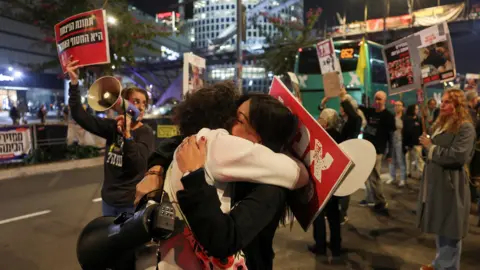 Reuters
ReutersSharone Lifschitz is a British-Israeli woman whose 84-year-old father Oded is one of the remaining hostages. Her mother, Yocheved, was also abducted during the attack on October 7 but was released after several weeks in captivity.
When news of the deal broke, she told the BBC in London that she felt “a bit sane” but admitted: “I knew my dad's chances were very slim.”
“He was an old man, but miracles do happen. My mom did come back, and no matter what, we would have known. We would have known if he was still with us and if we could take care of him.”
She warned: “There will be more graves, more traumatized people will come back, but we will take care of them and give them sight… May this be the beginning of something better.”
Father-of-two Omri Miran, 47, and his brother-in-law Moshe Lavi told the BBC it was “a very complicated day for most of the hostage families” .
“We want to see our families come home from mass confinement. But we also understand this is a phased deal. Only phase one was agreed,” he said.
“We must continue to fight and continue to advocate as a family with all of the leaders of our government to make them understand that they must release all of the hostages.”
UN Secretary-General António Guterres said “the priority now must be to alleviate the immense suffering caused by this conflict”.
